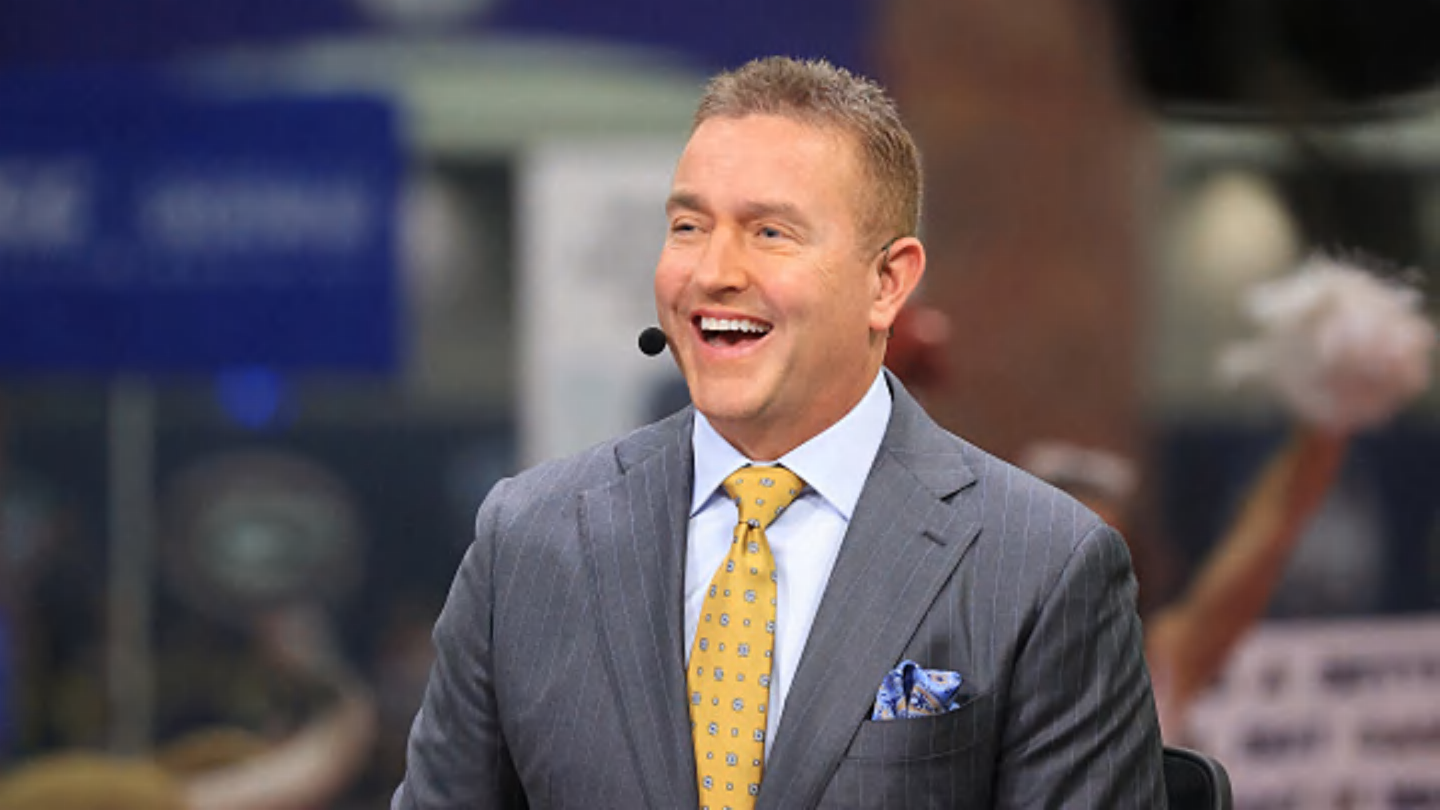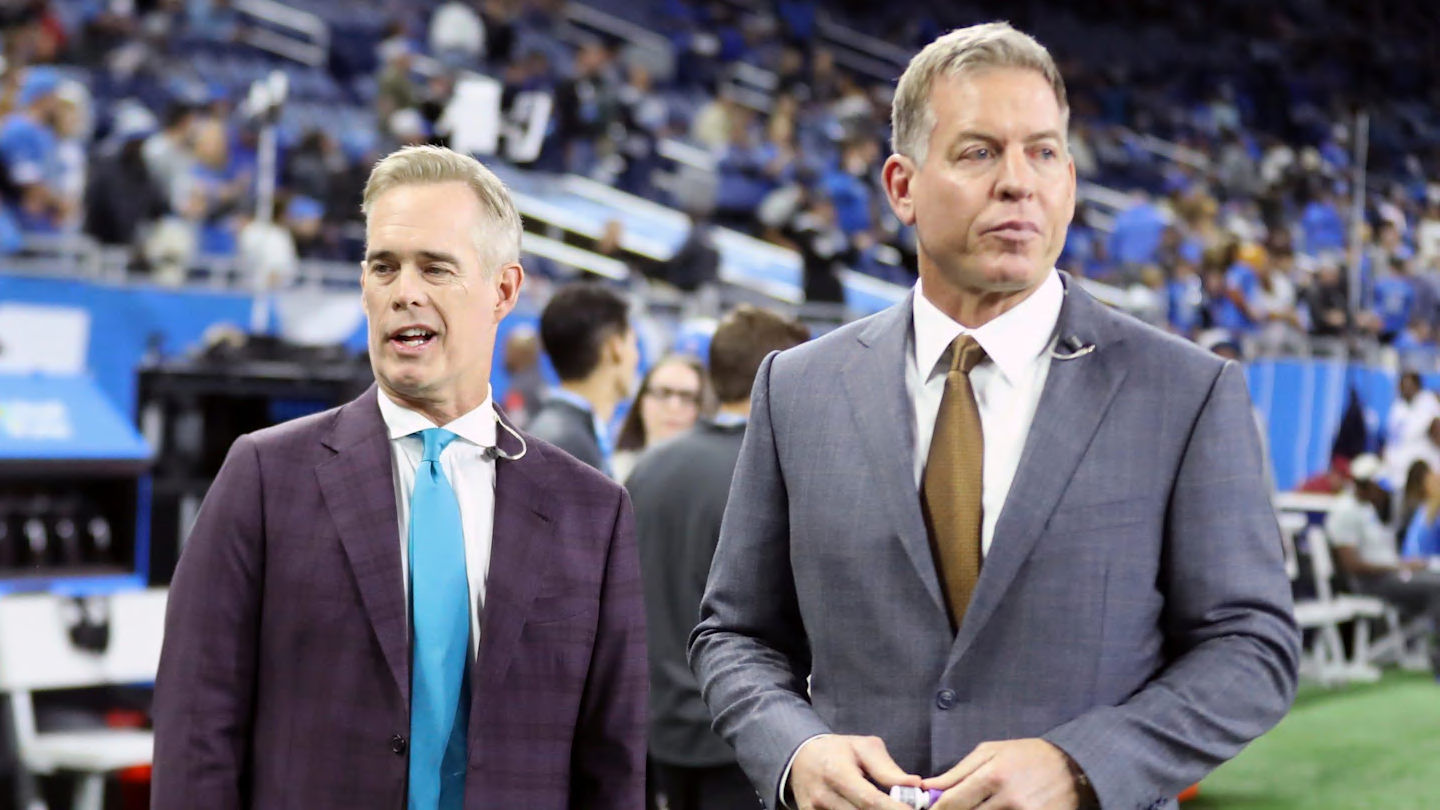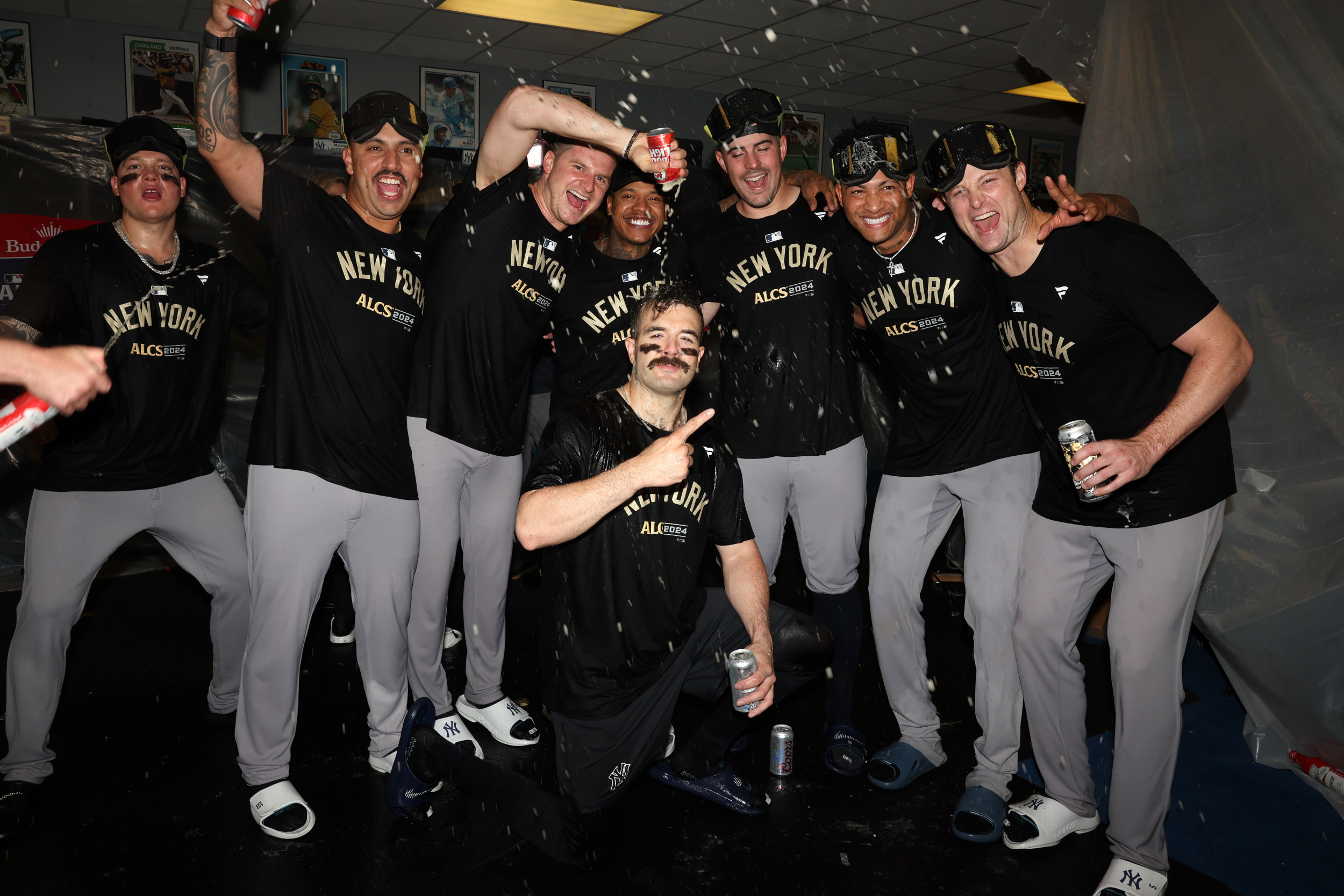Sweet Spot: ‘Malibu’ Kelly Hayes Is NFL Broadcasting’s Behind-the-Scenes Star
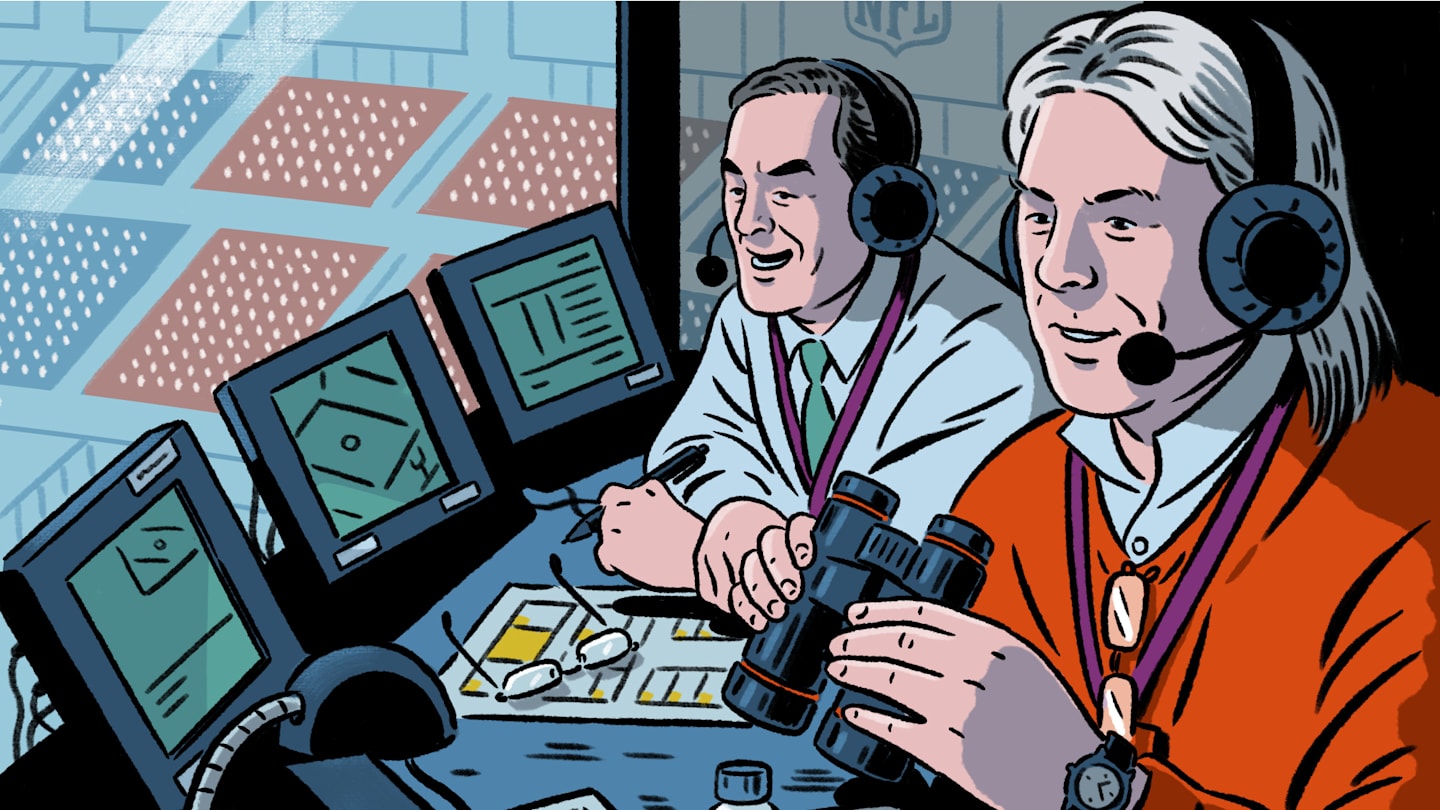
Spotting “Malibu” Kelly Hayes?
It isn’t all that hard. You can catch him thundering through airports, usually connecting through Denver, as he scrambles to catch a flight. With his spectacular shock of shoulder-length hair trailing behind him like a kite, you can find him running at 8,500 feet of elevation in the mountains outside his home in Aspen, as he quickly volunteers, he once did for 4,318 straight days.
Or you might find him on the slopes behind his home. In his role as a media liaison for the Aspen Skiing Company, he takes visiting journalists skiing. And you can spot his handwork, a breezy and stylishly written wine column, in the Aspen Times, which he’s filed before deadline 893 straight weeks and counting.
It was, of course, a beer guy who laid claim to the Most Interesting Man in the World honorific. But, at age 68, this chardonnay guy could challenge for that title. And, we haven’t gotten to Malibu Kelly Hayes’s main gig, the reason why his name likely rings a bell, if perhaps a faint one.
You won’t necessarily spot him in the NFL broadcast booth. He’s out of frame, just to the side of Al Michaels. But for 45 years and nearly 1,000 games now, Hayes’s eagle eyes and quick fingers have enriched the viewing experience of millions of football fans. “It’s a form of quality control,” says Michaels. “What Kelly does, it’s the kind of thing viewers appreciate without knowing they appreciate it.”
We talk about the sports industrial complex and the jobs it generates beyond roster spots and coaching positions. The television spotter is a prime example. Who knew you could make a living playing sports-birdwatcher, identifying that double-tight-end formation or the second-string linebacker who just made the tackle? From multiple levels above the field, Hayes arms himself with Maven brand binoculars and discerns plays as they unfold. In fractions of a second, he points to relevant numbers on his trusty chart, ensuring Michaels makes his call with accuracy.
Hayes is something akin to a backup singer: anonymous but an essential part of the ensemble, solidifying the performance of the featured player. “He’s my second set of eyes,” says Michaels. “Normally I can tell you who the ballcarrier is or the receiver is. But who makes the tackle? Not all the time. I may need some assistance on that because the play gets marginally obscured with the naked eye or even on the monitor. What he is also able to do: guys that come in and out of the game, somebody gets hurt and is on the sideline. That’s where he comes in.”
The spotter comes by it all honestly. As a kid growing up in, yes, Malibu, Hayes and his family had season tickets for Rams games, just below the L.A. Coliseum press box. “I remember not just going to those games,” he says, “but sitting with a pair of binoculars.”
At Palisades High, he put his powers of observation into practice, playing wide receiver on the football team. (He caught throws from quarterback Don Burgess, who later became an Academy Award–nominated cinematographer.) After Hayes didn’t make the football team at Colorado as a walk-on in 1974, he transferred to Boston University.
There, he studied communications, and for a senior project, he researched how ABC Sports covered games, meets and matches. Through that experience, he was offered a job as stage manager when Don Drysdale and Keith Jackson called the 1978 winner-take-all play-in game at Fenway Park between the Red Sox and the Yankees when Bucky Dent hit his famous home run. Hayes, living in Kenmore Square at the time, was despondent. But he made sure Jackson made it to the winners’ locker room after the bottom of the ninth.
At a PGA Tour event in Colorado, Hayes met George Hill, who had recently been anointed as Michaels’s stat man. Hill had begun traveling to games from
his home in rural Washington state to assist in the broadcast booth. Hill suggested that Hayes could flank Michaels on the other side, in this newfangled role as spotter.
When Hayes asked what the job entailed, the answer was slow and coming. Essentially he would “build a board” for Michaels, an arts and crafts project, stuffed with easy-to-read information—uniform numbers, heights, weights, draft classes—for players on both sides of the ball. Ideally, Michaels would study the board before the game and then be able to refer to it during the broadcast.
Hayes shrugged in assent. He built his first board (“It was terrible”) and, a few weeks later, in the fall of 1979, he was standing amid 75,000 fans at a Penn State-Nebraska football game, asking for directions to the broadcast booth. “I was scared to death,” he recalls. “I just followed the action. And I guess it all worked out.”
Yes, it did. And thus began one of the more unusual relationships in sports. Two weeks after meeting in Nebraska, Hayes worked with Michaels at the 1979 World Series. But the overwhelming majority of their broadcasts have been football games. For more than 40 years, Hayes and Michaels have had a weekly tryst at an exotic NFL location. One week it’s New Orleans; the next week it could be Seattle. Michaels—and thus Hayes—has switched networks and nights and even delivery modes, having gone from network (ABC) to cable (ESPN) back to network (NBC) and now—in Michaels’s current role with Amazon’s Thursday night games—to streaming.
Early in their relationship, Michaels, a longtime Southern California resident, began good-naturedly referring to Hayes as “Malibu Kelly.” (“People think they’re getting an attractive blond woman and are probably disappointed,” says Hayes.) As a matter of habit, Michaels often concludes broadcasts with words to the effect of: Thanks to the producer and the director, and the rest of the team in the truck. And, of course, Malibu Kelly Hayes, up here with me.
Though Hayes and his wife Linda moved to Aspen more than 20 years ago, the Malibu nickname stuck. In 1996, for instance, Michaels did a pregame interview with Cowboys coach Barry Switzer. At the time, Michael Irvin, the team’s star wide receiver, was facing a suspension. When Michaels asked when Irvin would be eligible to come back to the building, Switzer replied, “About the time you thank Malibu Kelly Hayes at the end of the game.”
As an independent contractor, Hayes is paid by the game (he gently declines to say precisely how much) and has often held other jobs, including selling ads for Penthouse. He wasn’t in Aspen long when the publisher of the local newspaper heard about his knowledge of wine and, on a lark, asked if he had any interest in writing about food and spirits. Thus began “WineInk,” a weekly column that covers new local vineyards to global trends.
One week he might write about Western Colorado’s underrated cabernet sauvignons. The next week, it could be about Austrian oenophiles spending $1 billion on an estate. Often he combines his NFL travel—say, to a 49ers game—with a wine reporting trip.
And as he sees it, there’s plenty of overlap between his two jobs-cum-passions. “I see sports and wine as separate pursuits,” he says. “But when you’re into sports, you’re into where people are from. You’re interested in their stories. You’re interested in their statistics. Same [for wine]. There’s this base element at the core, the way information is being conveyed and processed.”
Among Hayes’s personal highlights conveying and processing? In the waning seconds of Super Bowl XXXIV, Hayes wasted no milliseconds, pointing out that Titans receiver Kevin Dyson was tackled at the 1-yard line by St. Louis linebacker Mike Jones, preserving the Rams’ victory.
Fifteen years later, Super Bowl XLIX may have marked Hayes’s personal career MVP performance. In the waning moments of the game, Hayes noticed the Seahawks inexplicably declined to hand off the ball to Marshawn Lynch and instead called for a passing play. He then fingered little-known Patriots defensive back Malcolm Butler as the player who intercepted Russell Wilson’s red zone pass.
It’s worth noting that, when asked independently, Michaels also brings up the same two plays. “There’s that thousandth of a second where you say, Did I screw this up? Then, there’s that affirmation where Kelly can point to it.”
Despite some close calls and some travel (mis)adventures and many delayed flights, Hayes has not missed an assignment. Hayes has had to spring O.J.-style through airports. He’s had to drive to Grand Junction, Colo.—127 rugged miles from Aspen—and fly west before flying east. “One thing I will say about myself: I show up,” Hayes says.
Says Michaels: “You know how FDR said, ‘We have nothing to fear but fear itself.’ Well, I have nothing to fear but Kelly Hayes not showing up for a game.”
Related
NFL coaching requests, hires: Full list of teams and names…
Black Monday in the NFL, the day after the final game of the season, is typically a day of firings. And while Black Monday 2025 still had a few firings (Doug Pe
Titans fire general manager Ran Carthon after securing No. 1…
The Titans didn’t trust their current regime to handle the No. 1 pick. Tennessee has fired general manager Ran Carthon after just two seasons, t
Titans fire GM Carthon; Callahan to remain HC
Turron Davenport, ESPNJan 7, 2025, 10:48 AM ETCloseTurron Davenport covers the Tennessee Titans for ESPN. Turron is a former collegiate football player at Cheyn
Super Bowl 2025 odds: Where Chiefs, Lions stand entering NFL…
Gambling content 21+. The New York Post may receive an affiliate commission if you sign up through our links. Read our editorial standards for more

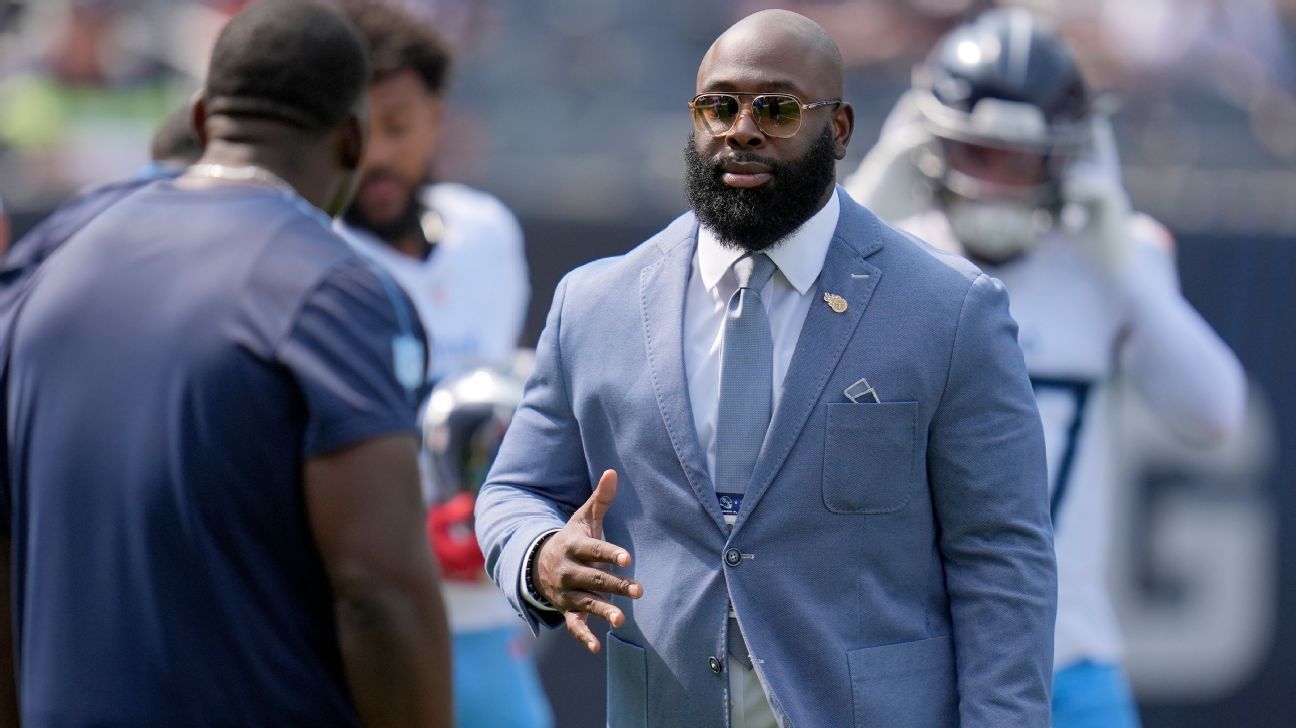


)
